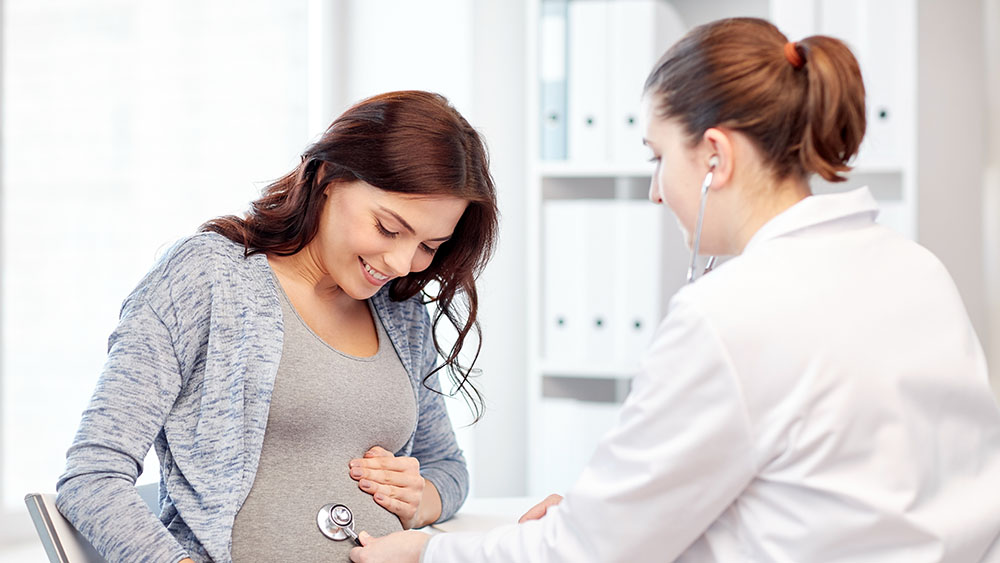
Evidence suggests that protective antibodies against SARS-CoV-2 can pass from mother to fetus.

Evidence suggests that protective antibodies against SARS-CoV-2 can pass from mother to fetus.
What you need to know
In a study funded by the National Institute of Allergy and Infectious Diseases (NIAID), researchers found that people who received a primary COVID-19 vaccine dose or an additional booster dose while pregnant generated protective antibodies against SARS-CoV-2 in both their own blood and the umbilical cord blood, which suggests that the protective antibodies reached the fetus.
What did the researchers do?
The Multisite Observational Maternal and Infant Study for COVID-19 (MOMI-VAX) launched in June 2021 to research how COVID-19 vaccination affects the immune systems of pregnant people. The study includes the results from 240 participants: 167 who received the two-dose primary series of an mRNA COVID-19 vaccine while pregnant and 73 who also received a booster dose. (At the time of the study, only one booster dose was recommended. The study closed in early 2022.)
To measure protective antibody levels, the researchers analyzed blood samples gathered before participants received the primary vaccine series or an additional booster, after the vaccination or booster, and at the time of delivery. A sample of umbilical cord blood was also gathered at delivery to measure antibodies that crossed the placenta.
The researchers found that pregnant people who received the COVID-19 vaccines generated antibodies against SARS-CoV-2 variants, including Omicron. Antibodies were also found in the cord blood, which suggests that the newborns also received protection against SARS-CoV-2. Study participants who received a booster dose had more antibodies in their blood and cord blood samples than those who received the primary series.
Why is this research important?
Research has shown that COVID-19 vaccination is safe and effective for pregnant people. Pregnant people are more likely to have severe COVID-19, and the disease increases their risk for preterm birth. Infants under 6 months of age are also at increased risk for severe COVID-19, and they are not eligible to get vaccinated.
This research supports COVID-19 vaccination, especially with booster doses, during pregnancy for the protection of pregnant parents and newborns. Future research can examine the best time during pregnancy to receive their first COVID-19 vaccine dose or a booster dose for the most protection.
Where can I go to learn more?
More Evidence That COVID-19 Vaccination While Pregnant Likely Protects Children
- A study supported by NIAID reported on the levels of protective antibodies in lactating people’s blood samples and breast milk.
COVID-19 Vaccination and Boosting During Pregnancy Benefits Pregnant People and Newborns
- Another NIAID-supported study shows the effects of COVID-19 vaccination and booster doses during pregnancy.
COVID-19 Vaccines While Pregnant or Breastfeeding
- The Centers for Disease Control and Prevention shares information related to COVID-19 vaccination for pregnant and lactating people.
Sources
Munoz, F. M., Posavad, C. M., Richardson, B. A., Badell, M. L., Bunge, K. E., Mulligan, M. J., Parameswaran, L., Kelly, C. W., Olson-Chen, C., Novak, R. M., Brady, R. C., Pasetti, M. F., Defranco, E. A., Gerber, J. S., Shriver, M. C., Suthar, M. S., Coler, R. N., Berube, B. J., Kim, S. H., , … & DMID 21-0004 Study Group. (2023). COVID-19 booster vaccination during pregnancy enhances maternal binding and neutralizing antibody responses and transplacental antibody transfer to the newborn. Vaccine, 41(36), 5296-5303. https://doi.org/10.1016/j.vaccine.2023.06.032

News and Stories
Read stories about the efforts underway to prevent, detect, and treat COVID-19 and its effects on our health.
 An official website of the United States government
An official website of the United States government

